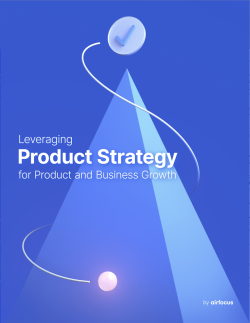First Mover Advantage
What is the first-mover advantage?
Definition of the first-mover advantage
First mover advantage refers to the competitive edge a business earns by being the first to launch with a certain product or service.
By launching first, a business often becomes synonymous with that product or service, thereby securing a place in consumers’ minds and lives, even when newer offers arrive on the scene.
A good example of first-mover advantage involves Netflix. When Netflix launched video streaming in 2007, it offered consumers an entirely new way to enjoy entertainment. Today, even with Amazon Prime, Hulu, and other streaming services trying to keep up, Netflix retains an unbeatable market share and dedicated customer base through their competitive advantage. Being a first-mover can also come at a cost which is called the first-mover disadvantage.

General FAQ

Glossary categories
Create effective product strategy

Experience the new way of doing product management








